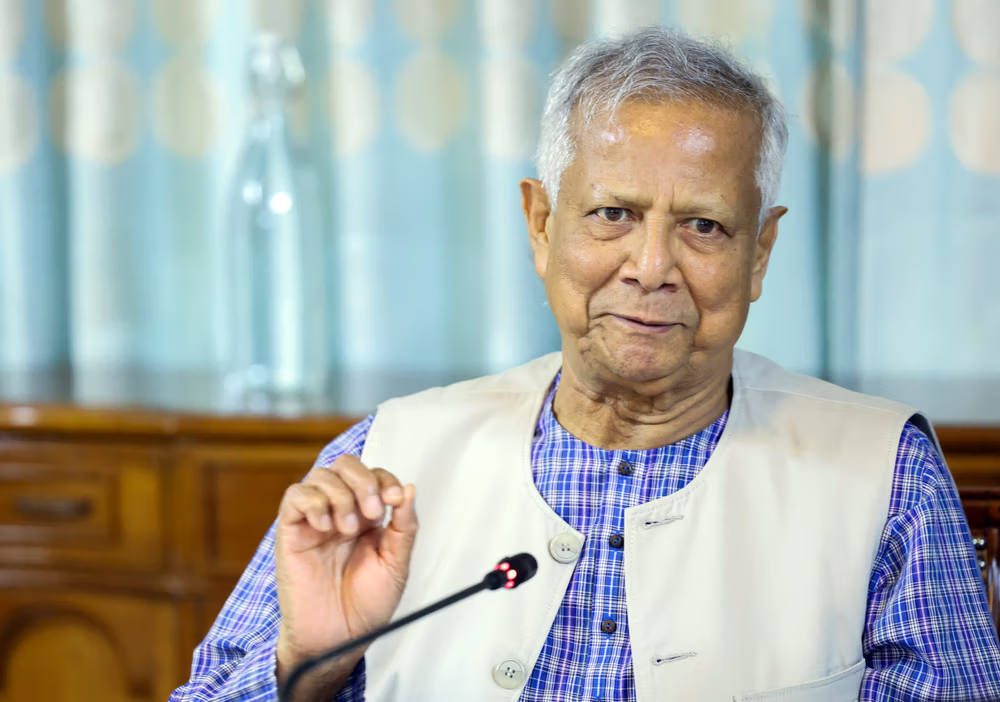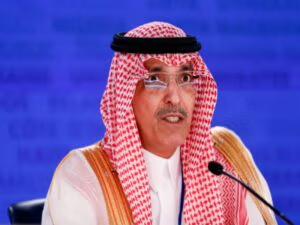Bangladesh’s Chief Adviser, Professor Muhammad Yunus, will make his 11th foreign visit in the last eleven months, scheduled for the United Kingdom from June 9-13.
Reliable sources said that Yunus, who announced on Friday that elections will be held in April 2026, is scheduled to hold a confidential political dialogue with Bangladesh Nationalist Party’s (BNP) Acting Chairman Tarique Rahman.
Addressing a rally virtually on May 28, Tarique Rahman had stated that historically, caretaker governments in Bangladesh have shown that national elections can be organised and executed within three months. The precedent is clear: it can be done. “And yet, ten months into its tenure, the interim administration has still not announced an election date. The people of Bangladesh deserve better. We seek a nation free from authoritarianism, led by a government elected through a fair vote, and accountable to its citizens,” he had said.
The BNP has stated unambiguously that it wants the national elections to be held by December this year as it perceives a “clear victory” minus the Awami League. The BNP members, including Tarique Rahman, are strongly opposed to Yunus’s incrementalism and his advisors, who are mainly from the July 2024 uprising. At home, there is hardly any political or economic value for Yunus. The BNP wants an “honest assessment of what has been accomplished” in these months and not what was “spin-doctored” as Yunus is in the habit of doing.
Similarly, the Bangladesh military sought to hold the national election by December 2025. Gen Waker-uz-Zaman, the Chief of Army Staff, had drawn the red lines for the Yunus administration.
Bangladeshi communities in Britain are mainly concentrated in Greater London boroughs, such as Tower Hamlets, Newham, and Camden. Outside London, the British Bangladeshi community is heavily concentrated in major cities such as Birmingham, Manchester, and other urban centres across the UK.
Islam, as a religion, plays a binding factor among young British Bangladeshis, who have questioned the secular nationalism of their parents and grandparents. Many British Bangladeshi citizens are active in British politics.
The Conservative Friends of Bangladesh at Westminster discussed on April 28, focusing on Bangladesh’s fragile transition, law and order, the safety of religious minorities, promises of reform and democracy, and the prospect of inclusive elections under the Interim Government.
Lord Jonathan P. Marland, Chairman of the Commonwealth Enterprise & Investment Council, chaired the meeting. Richard Fuller, the MP from North Bedfordshire & Shadow Chief Secretary, Gareth Bacon, the MP from Orpington & Shadow Transport Secretary, Bob Blackman, the MP from Harrow East, Chairman of the 1922 Committee & Chair of the Backbench Business Committee, participated in the meeting and voiced their concern on the prevailing situation in Bangladesh.
Overall, the participants expressed grave concern over the plight of minorities due to the disturbed political situation and also dwelt on fragile economic conditions. They pledged help and support from Conservative Party leaders and members to hold a free, fair, and inclusive election, revive the economy, and ensure adequate safeguards for minorities.
Earlier, on April 8, senior British politician and prominent jurist Lord Alex Carlile of Berriew chaired a seminar on ‘Democracy, Human Rights, Good Governance, Rule of Law and the role of Political Parties in Bangladesh’s Current Political Landscape,’ held at the House of Commons.
The event was organized by Blackman, who is also the President of the Parliamentary Group ‘Conservative Friends of Bangladesh’, and he called for ‘sincere efforts’ to ensure the upcoming elections in Bangladesh are fair, impartial, and inclusive.
In his message, King’s Counsel John Cammegh advised the Bangladeshi interim government to prioritise political, social, and economic democratisation over establishing an International Criminal Tribunal against the previous government. He warned that such tribunals often serve as tools for political retribution, fostering division and anxiety. Asserting that it will only help the income of legal advisors, he advocated for a Truth and Reconciliation Commission to promote unity and healing in Bangladesh.
Yunus aims to gain international legitimacy, economic and political support, diplomatic recognition, and influence from Western perspectives.
The Awami League never missed an opportunity to attack Yunus, and no doubt, Yunus is paying back the same with dividends by banning the Awami League. In the complex, personal jealousy of Yunus, there is a precipitous decline in democracy and human rights in Bangladesh, with a growing Western and US trend of turning a blind eye to Yunus’s adverse activities.
During the visit to London, Yunus will receive the “King Charles III Harmony Award 2025”. A bilateral meeting with UK PM Keir Starmer is also scheduled at 10 Downing Street on June 11.
Major issues that are likely to be discussed are prevention & repatriation of illicit capital with Bangladesh expected to request British government’s support in repatriating funds allegedly laundered during AL’s tenure, seek the UK’s backing for the reforms and election preparations by the interim government in Bangladesh, support for the July-August mass movement, and investment and export trade.
The British High Commissioner to Bangladesh, Sarah Cooke, met Yunus on Wednesday at the State Guest House in Dhaka.
Their discussions encompassed a range of mutual interests, including trade and investment, aviation cooperation, migration, and the interim government’s efforts in asset recovery (the interim government says the previous regime enabled the laundering of an estimated $16 billion annually.
Yunus expressed interest in receiving technical support from the UK, including training by British researchers, to bolster Bangladesh’s ocean research efforts.
The meeting was also attended by Lutfey Siddiqi, the Chief Adviser’s envoy for international affairs, Lamiya Morshed, the Sustainable Development Goals (SDG) Coordinator, and James Goldman, Deputy High Commissioner of Britain.
–IANS





